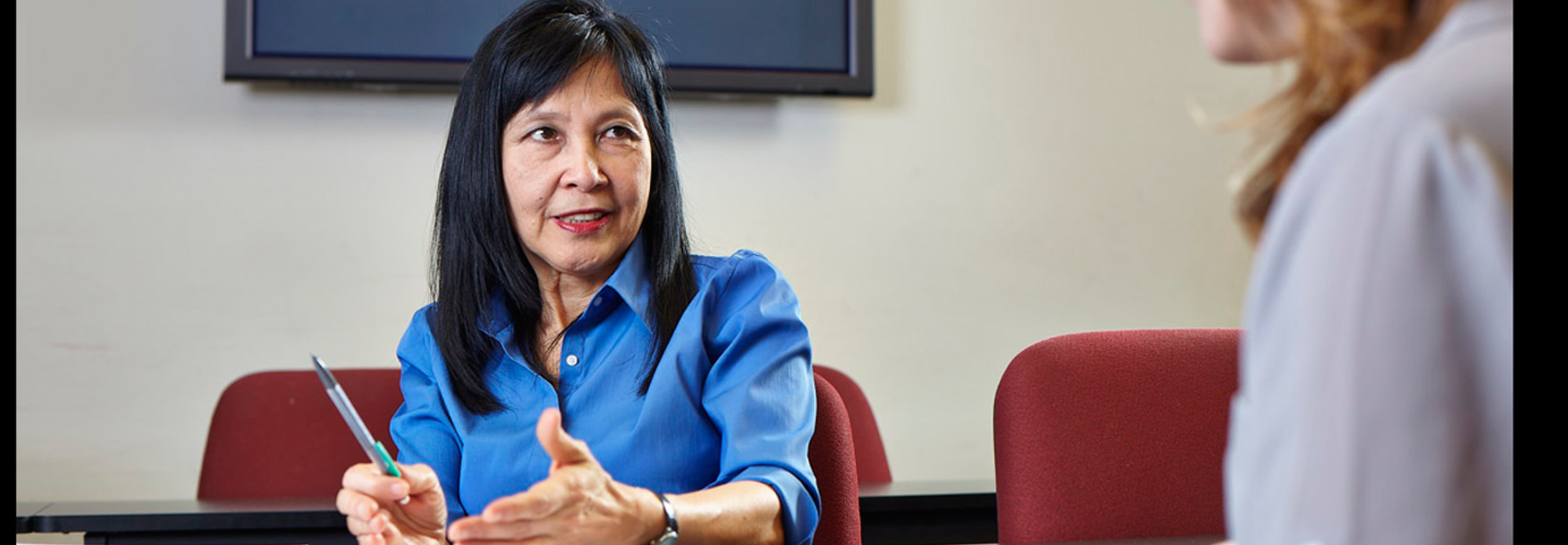Q&A: Texas Tech's Rattikorn Hewett
In the 1970s, before the computer science discipline matured, Rattikorn Hewett received a scholarship to study pure mathematics in Australia, eventually earning her master's degree from the University of New South Wales. Her next stop was the United States, where she earned a Ph.D. in computer science at Iowa State in 1986.
Hewett did post-doctoral work in artificial intelligence (AI) at Stanford University under Barbara Hayes-Roth, concentrating on intelligent control systems. One of her team's projects, the DARPA-funded Guardian Blackboard Control Architecture (completed in 1996) underlies Boeing's modern-day control architecture.
Much of Hewett's career has been dedicated to applied AI research on emerging problems. She recently spoke with EdTech Managing Editor Tara E. Buck about her work and the importance of helping other women embark on their own STEM-based education and career.
EDTECH: Did you have any women colleagues in those universities or on those projects, or were you often on your own?
HEWETT: Women have always been a minority where I have studied and worked, especially in the past. Just to give you an idea, where I was in Australia, I started in a concentrated mathematics program. The classes averaged about 10 students, and I was one of two or three women. In the end, only three students graduated, and I was the only woman.
In computer science, it's a lot better, and you can see more females than in mathematics. When I came here [to the United States], it wasn't as bad. At Iowa State, there were quite a few women students, but not many of them pursued Ph.D.s. It is still a male-dominated field. Even now, in my department, we only have two female faculty, including myself. We are recruiting heavily, so another woman faculty member will be joining the department this year. As long as I am here, I want to promote hiring women and getting more women to take computer science classes. We have a relatively new dean in the Whitacre College of Engineering, Al Sacco Jr., who has done a terrific job of achieving diversity. In the college leadership team alone, we have three women who are chairs of their departments, and we have one associate dean who is a woman.
EDTECH: That's encouraging. And are you seeing more female students in your classes coming up?
HEWETT: Yes, but I feel that what we have done is not enough, not as much as I would like to see. When I spot female students, I always talk to them one on one and see whether I can mentor them. Because of my own experience, I know how most young women might think as students. We tend to obey the rules, and we tend to be modest. So we don't always know our own capabilities but, in fact, we are just as good as the men in the class.
That's the kind of encouragement that they need to hear. We organize a group of female students and meet once a month or so, go out to eat and just talk about whatever they want to know. We call this group EWOCS, which stands for Extraordinary Women of Computer Science.
EDTECH: Do you think that there are some solutions for the disparity, not just in your department but everywhere? Do you think it's being tackled appropriately?
HEWETT: I think a lot of people have done a lot of good work at different levels. There's a lot of outreach, not just for females or minorities but also for computer science education. You have robotics camps and all of these things, but nobody really measures the effectiveness of it all. I recently participated in the National Science Foundation's CE21 program [Computing Education for the 21st Century], and their goal is to increase the number of teachers and also the number of students in computer science. They are finding that we do a good job in middle school, but many students get lost at the high school level.
From high school on, students just don't study computer science. And if you look at the AP [high school advanced placement], they have solid programs for other engineering fields, but not computer science. So, CE21 is trying to change that. At the college level, there are still a lot of people who do not have the right idea of what computer science is all about, and that creates retention problems because some students come for the wrong reasons. They tend to think that doing computer science is like playing a game, developing game programs, and it's not. It's science. Some of them want to do IT, and some of them want to do business management information systems, which is slightly different. I think there needs to be proper communication, to explain to students what these fields entail so that their expectations are met.
EDTECH: When it comes to the classroom, what needs are you seeing that aren't being met by current classroom tech? What about that evolution?
HEWETT: You may laugh. The very thing that I want, and it probably can't be done, is to block texting and tweeting. Students do not pay attention as much as they should, and in some ways technology makes them lazy, because they feel like they can just watch the lecture later but, sometimes, that's not the same. It's more efficient to pay attention in class. Still, there are pros to our technology. What I like is that it facilitates our ability to provide long-distance courses. There are so many online courses now, some from great universities, top 10 universities. You can watch their lectures, and it's free. To me, that is so great.
EDTECH: What are some other developments you're seeing?
HEWETT: We have to realize that these kids are in a new generation. The way they learn things is different now. They are very good at finding information, and so you need to make them interested. You can take a huge step and say, "Go find information and do something with it." So the way I teach students to do research is also different since finding information can be faster. Today's students also don't have patience. They want the answer now, and don't want to spend time thinking. I have to tell them, "Certain things require time for really deep thinking."
In terms of instruction alone, that means we must come up with problems that are close to them, not something that they can't imagine. Their research really needs to motivate them. The hard part about that is to formulate the problems, to find ways to interest students with things that they see, things that they understand the impacts. I try to provoke their thinking a bit on how to solve their problems.









